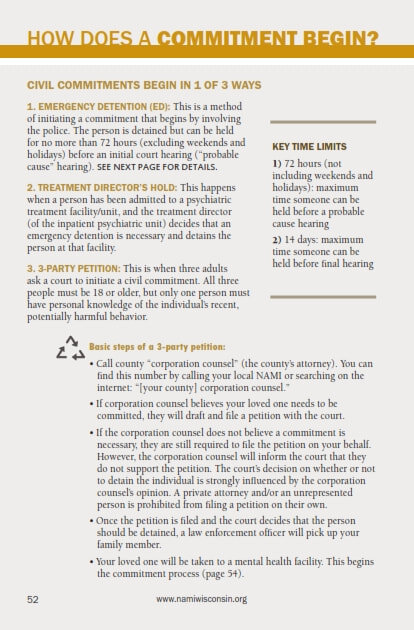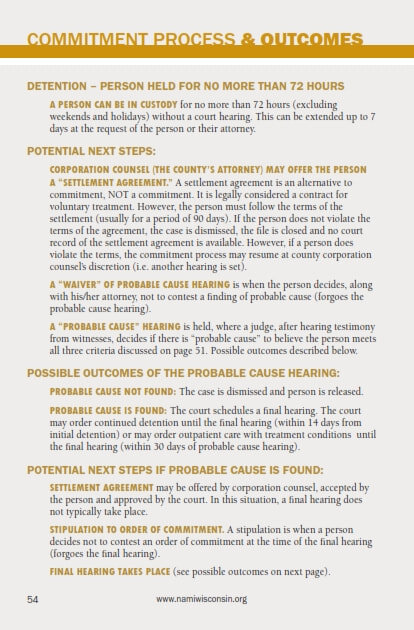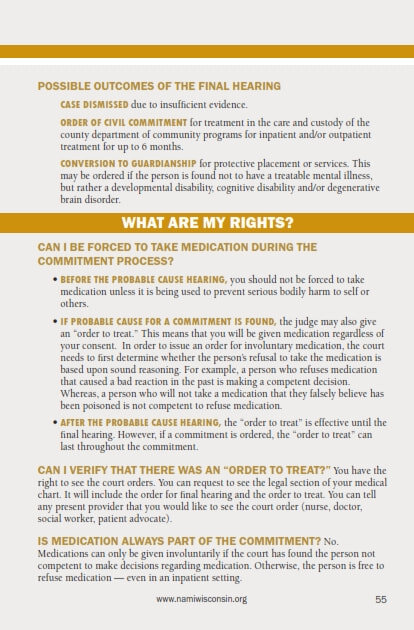Understanding the Civil Commitment Process
Wisconsin has civil commitment laws that outline criteria for when involuntary treatment is appropriate. For a person with mental illness to receive court-ordered inpatient or outpatient treatment, they must have a treatable mental illness, drug dependency, or developmental disability and meet one of the criteria for establishing if they are a threat to themselves or others.
We have provided information below to help you better understand the civil commitment process because the emergency detention and civil commitment process can be confusing and overwhelming,
What is a commitment?
A civil commitment is a court order for up to six months of inpatient or outpatient mental health treatment. The treatment must take place in the least restrictive setting consistent with the person's needs.
A commitment begins in one of three ways.
Emergency Detention by Law Enforcement
How does an emergency detention work.
Emergency Detention by Treatment Director, sometimes called a "Treatment Director's Hold"
3rd-Party Petition
How does a commitment begin.
Note that the maximum time someone can be held before a probable cause hearing is 72 hours (excluding weekends and holidays).
Before a final hearing, it is 14 days.
Possible Outcomes
Potential next steps following detention include:
County attorney may offer the person a "settlement agreement". This is NOT a commitment, but an agreement to enter into voluntary treatment.
A waiver of the probable cause hearing.
A probable cause hearing. If probable cause is found, potential next steps include a settlement agreement, stipulation to order of commitment, or a final hearing.
A final hearing. If the case goes to a final hearing, there may be an order of civil commitment, conversion to guardianship, or case dismissed.
Each of the potential outcomes listed above are described in more detail in the following document developed by NAMI Wisconsin below.
What are my rights?
You can download the following document to better understand your rights throughout the commitment process. If you feel your rights have been violated, reach out to Disability Rights Wisconsin at (800) 928-8778.
Navigating the experience full.






